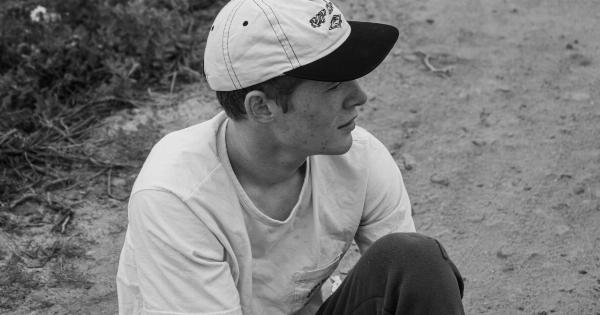Fandoms have become an integral part of modern society, with fans often going to great lengths to show their dedication and support for their favorite celebrities or fictional characters.
While most fans express their admiration in harmless and creative ways, there are instances where individuals take their fandom to extreme levels, sometimes even throwing themselves at a fan or celebrity. Such acts may seem innocent or driven by intense emotions, but they often come with significant consequences. This article delves into the aftermath of throwing oneself at a fan, highlighting both the potential physical and psychological effects.
The Obsession with Fandoms
Fandoms are characterized by their passionate and devoted followers who often form tight-knit communities centered around a common interest. Whether it’s a musician, actor, or a fictional character, fans find solace and identity in their fandoms.
Social media platforms have only amplified the prevalence of fandoms, providing safe spaces for fans to engage with one another, share their appreciation, and express their love for their respective idols.
The Dangers of Taking It Too Far
While most fans interact with their favorite celebrities or fictional characters in a respectful and appropriate manner, some individuals become consumed by their obsession.
They may disconnect from reality and adopt an unhealthy fixation on a particular person or character. This extreme behavior can lead to dangerous consequences, especially when fans physically throw themselves at their idols.
Risk of Physical Injury
When fans impulsively throw themselves at a fan or celebrity, they run the risk of sustaining serious physical injuries.
In crowded settings such as concerts or public appearances, fans may rush toward their idols in hopes of getting closer or making physical contact. However, this surge of people can quickly escalate into chaos, with pushing, shoving, and crushing becoming rampant.
In such circumstances, individuals may be trampled, pushed against barricades, or even hit by flying objects, resulting in severe injuries or even death.
The Psychological Fallout
Apart from the obvious physical risks, throwing oneself at a fan can have long-lasting psychological repercussions.
Fans who engage in such behavior may experience severe disappointment or feelings of rejection if their advances are met with negativity or rejection from their idols. This rejection can shatter their self-esteem, leading to emotional distress, depression, or even developing unhealthy coping mechanisms.
Adverse Effects on Celebrities and Their Mental Well-being
It is essential to acknowledge that the consequences of throwing oneself at a fan do not only affect the fans themselves. Celebrities, musicians, or actors are often the targets of such extreme acts.
While some may interpret this behavior as a display of love or admiration, it can be deeply unsettling and even traumatic for the person at the receiving end. Constantly being pursued, mobbed, or frightened by fans can negatively impact the mental well-being of the celebrity, leading to anxiety, stress, or even paranoia.
Law Enforcement and Legal Consequences
In cases where throwing oneself at a fan turns violent or results in harm to the individual or others, law enforcement may get involved. Depending on the jurisdiction, engaging in such behavior may be classified as assault or public endangerment.
Fans who cross the line from enthusiastic support to physical aggression may face legal consequences, including fines or even imprisonment, tarnishing their reputation and leaving a permanent mark on their record.
Lives Forever Altered
The aftermath of throwing oneself at a fan can be life-altering for both the fan and the celebrity involved.
Fans who are caught engaging in extreme behavior may face significant social backlash, their actions becoming public knowledge and subject to public scrutiny. This can lead to alienation from their fellow fans and a loss of support in the fandom community they once cherished.
Similarly, celebrities may become increasingly guarded, needing to take extreme measures to ensure their personal safety. This could mean restricting public appearances, hiring additional security, or even cutting ties with their fan base altogether.
The mutual trust and connection between fans and celebrities become strained, with interactions becoming more distant, scripted, and heavily managed.
Learning From Past Incidents
As extreme fandom behavior gets more attention in the media, it becomes crucial for both fans and celebrities to learn from past incidents.
Fan conventions, music festivals, and public events need to prioritize security measures to prevent chaos and protect the well-being of fans and celebrities. Fandom communities could establish guidelines and educate members on appropriate behavior, emphasizing respect for personal boundaries and consent.
Mental Health Support and Intervention
Recognizing the potential psychological impact on fans, mental health support and intervention should be readily available.
Fandom spaces can collaborate with mental health professionals to ensure fans have access to resources that address their emotional needs. Creating safe environments where fans can openly discuss their feelings without judgment or ridicule is essential in preventing extreme behavior and promoting mental well-being within fandoms.
Conclusion
While it is natural to feel intense emotions and a sense of connection with our idols, throwing oneself at a fan is not a healthy expression of fandom.
The consequences can be severe and far-reaching, affecting both the individuals involved and the wider fandom community. By recognizing and addressing the potential dangers of extreme behavior, fans and celebrities can work together to create a safer and more respectful environment within fandoms.































